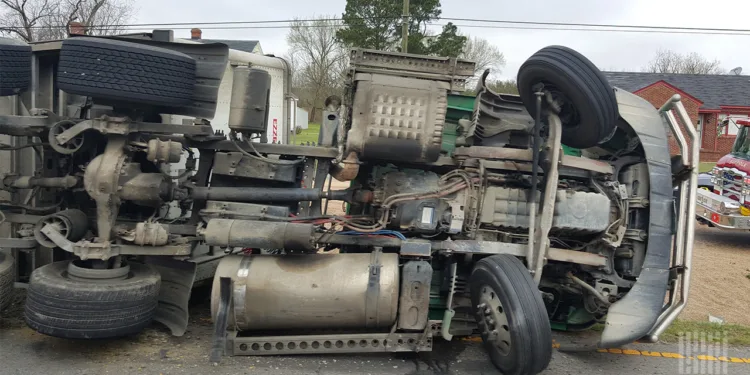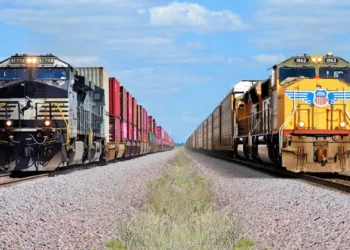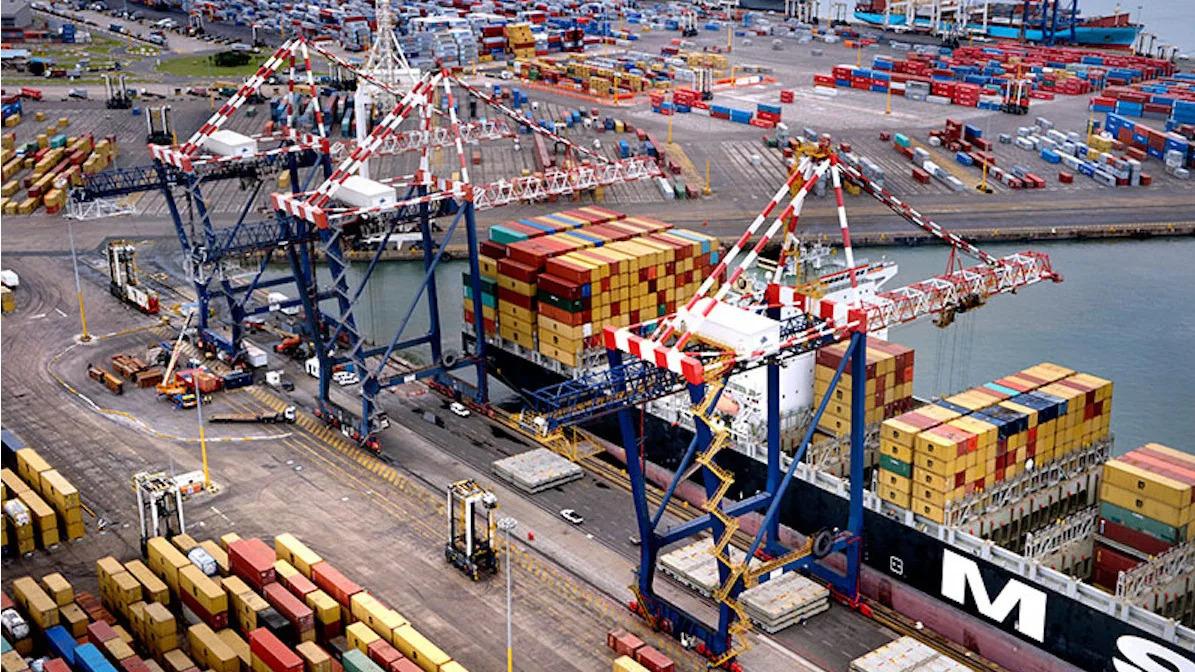The recently introduced FAIR Trucking Act (H.R. 5268) is Congress’ latest attempt to address the crisis in trucking litigation, but is it enough to actually address the systemic issues in the industry?
The bill, sponsored by Rep. Ashley Hinson (R-Iowa), would give federal courts jurisdiction over highway accident cases involving commercial motor vehicles where damages exceed $5 million AND there is diversity of citizenship between parties. On paper, it sounds reasonable, but some are warning it could be legislative sleight of hand that fails to address why trucking litigation transformed from legitimate compensation into borderline legalized extortion.
Nuclear verdicts are typically defined by jury awards exceeding $10 million and have become the mushroom clouds of modern trucking litigation. These astronomical awards didn’t come out of nowhere. They’re the product of a calculated assault on justice and the extortion of jury emotions.
The playbook is simple: find a truck crash, manufacture maximum emotional impact, and extract maximum financial punishment regardless of actual fault or damages. It’s not about making people whole, it’s about making people rich.
Consider the disparity in recent cases. There have been cases like Arizona’s TikTok trucker, Danny Tiner, sentenced to over 20 years for a crash that killed four people, while others like Virginia’s Richard Hutchinson Wright served just three years for equally tragic outcomes. Meanwhile, the corporate owners and management who set policies, hire drivers, and maintain equipment often emerge unscathed. This isn’t justice, it’s judicial roulette where the house always wins and the trucking industry always loses.
The corruption of trucking litigation didn’t happen organically. It’s been orchestrated by a sophisticated network of third-party litigation funders, plaintiff attorneys, and psychological manipulation tactics that would make a casino operator envious.
Third-party litigation funding has fundamentally corrupted the settlement process. Private equity firms and hedge funds now bankroll trucking cases like venture capital investments, expecting returns that can reach 20-40% or higher. This transforms what should be compensation into speculation.
How does it work? A plaintiff who might reasonably settle for $500,000 to cover medical bills and lost wages suddenly has access to millions in litigation funding. The funders pay all legal costs upfront in exchange for a percentage of any award, but there’s a catch: they need massive returns to justify the risk, which means settlements that would make someone whole are no longer acceptable. The plaintiff must be made rich, not just restored.
This creates artificial pressure to reject reasonable offers and roll the dice on nuclear verdicts. Plaintiffs who might have been satisfied with fair compensation are now financially incentivized to gamble on life-changing windfalls. The litigation funders don’t care about justice as much as they’re playing a numbers game where a few massive verdicts offset multiple losses.
Litigation funding is just one piece of the fraud puzzle. Expert witnesses have become weaponized consultants who manufacture liability where none legally exists.
The most egregious example involves light-duty vocational fleets that operate entirely intrastate. Many states have adopted versions of the Federal Motor Carrier Safety Regulations (FMCSRs) but carved out specific exemptions for smaller, local operations with lightweight non-traditional fleets. A landscaping company running pickup trucks with trailers or a local delivery service with box trucks under 26,000 pounds often isn’t subject to federal trucking regulations at all.
Yet plaintiff experts routinely testify that these companies failed to implement “proper safety management systems” based on FMCSRs that don’t even apply to them. They’ll claim the company should have maintained driver qualification files, conducted drug testing, or implemented hours-of-service tracking, all while knowing the defendant isn’t legally required to do any of it.
The scam works because many defense attorneys don’t realize their clients are exempt from the regulations being cited. They see “trucking expert” and assume federal regulations apply universally. By the time anyone discovers the regulatory exemption, the company has already been painted as negligent in depositions and discovery.
This manufactured complexity serves everyone except justice. Expert witnesses collect hefty fees, plaintiff attorneys can claim regulatory violations that don’t exist, and litigation funders get the inflated damages they need to justify their investments. Meanwhile, legitimate small businesses get crushed by claims that they violated laws that never applied to them in the first place.
The “Reptilian Theory” is a litigation strategy that bypasses rational thought to trigger primal emotional responses in jurors and provides the emotional framework to sell these manufactured claims. Combine fake regulatory violations with gruesome photos and corporate greed narratives, and you can convince juries that a local landscaper is as dangerous as a negligent long-haul carrier.
The defense response, dubbed “The Mongoose” by litigation consultant Bill Kanasky at Courtroom Sciences, attempts to counter these tactics through strategic jury selection and emotional inoculation. But it’s an uphill battle when the deck is stacked with manufactured complexity, emotional manipulation, and unlimited funding.
The fraudulent commercial truck litigation ring exposed in Louisiana offers a glimpse into how far this corruption has spread. Attorneys, medical providers, and “accident victims” were charged in an elaborate scheme to manufacture truck crash claims. It’s the inevitable evolution of an industry that rewards fiction over facts.
When legitimate cases can yield tens of millions in damages, the incentive to create illegitimate ones becomes irresistible. Louisiana was a preview of what happens when litigation becomes more profitable than actual transportation.
Smart trucking companies have learned that basic regulatory compliance isn’t enough in today’s litigation environment. You need what I call “compliance-plus,” going beyond minimum requirements to build a bulletproof defense posture.
This means implementing policies that not only meet but also exceed federal standards. It’s about driver medical certifications with minimum 12-month terms, predictive maintenance programs instead of reactive ones, comprehensive training that goes beyond CDL requirements, and hiring criteria that prioritize safety over cost.
The most successful defenses start before the first mile is driven. It’s about who you hire, what equipment you buy, how you maintain it, and the culture you create. Every policy decision becomes potential courtroom evidence, make sure it tells the right story.
The FAIR Trucking Act’s shortcomings reflect a deeper structural problem in how trucking policy gets made. Congressional leaders who’ve never driven a truck or run a fleet rely on “industry experts” to guide their understanding, but many of these same experts profit from the current litigation chaos.
Trial lawyers use genuine trucking experts as witnesses to educate courts about industry standards and practices. But when those same legislators need guidance on trucking policy, they often turn to lobbyists, advocacy groups, and consultants whose paychecks depend on maintaining profitable dysfunction.
It’s the classic Washington game: the people explaining the problem are often the same people profiting from it. Safety advocacy groups need crashes to justify their funding. Plaintiff attorneys need nuclear verdicts to maintain their business model. Insurance companies need high premiums to boost profits. Everyone has skin in the game except the actual solution.
This creates policy recommendations that sound reasonable but miss the mark entirely, like the FAIR Trucking Act’s focus on federal jurisdiction rather than addressing litigation funding or emotional manipulation tactics.
The FAIR Trucking Act’s premise, that federal courts will somehow deliver more rational outcomes, represents wishful thinking disguised as policy. Federal juries aren’t immune to emotional manipulation, and federal judges aren’t magically more knowledgeable about trucking operations.
Moving cases to federal court may reduce some of the most egregious instances of venue shopping, where plaintiff attorneys seek the most favorable jurisdictions. But it doesn’t address the fundamental problems: unlimited litigation funding, psychological manipulation tactics, or the transformation of compensation into punishment.
The bill also sets a problematic $5 million threshold that could encourage even more aggressive damage calculations. Why settle for $4 million when crossing the $5 million line gets you federal court treatment?
Meaningful reform requires addressing the root causes, not just changing the courtroom’s address. The industry needs:
- Litigation funding transparency: Jurors should know when hedge funds are bankrolling cases, creating pressure for outsized returns.
- Damage award caps tied to actual economic losses: Pain and suffering awards should compensate, not punish corporate existence.
- Expert witness standards that prevent junk science and manufactured theories from influencing verdicts.
- Venue reform that assigns cases based on where crashes occur, not where plaintiff attorneys shop for friendly courts.
- Sanctions for frivolous claims that make manufactured cases financially risky for those who file them.
The trucking industry didn’t create this litigation crisis, but it’s paying the price through skyrocketing insurance premiums, operational restrictions, and the constant threat of bankruptcy-inducing verdicts. The FAIR Trucking Act represents congressional acknowledgment that something is wrong, but it’s treating a symptom while ignoring the disease.
Real reform requires confronting uncomfortable truths about how our legal system has been corrupted by financial incentives that prioritize profits over justice. It means acknowledging that the current system often punishes companies that operate safely and responsibly while rewarding those who manufacture claims and manipulate emotions.
The goal should be simple to make the injured parties whole, not wealthy. Punish actual negligence, not corporate existence. Restore justice to a system that’s become a legalized shakedown operation. Until we address these fundamental issues, changing courtrooms won’t change outcomes. The house will keep winning, and the trucking industry will keep losing, regardless of which federal judge is dealing the cards.
The post With Trucking Litigation Off the Rails, Will The FAIR Trucking Act Be Enough appeared first on FreightWaves.




















